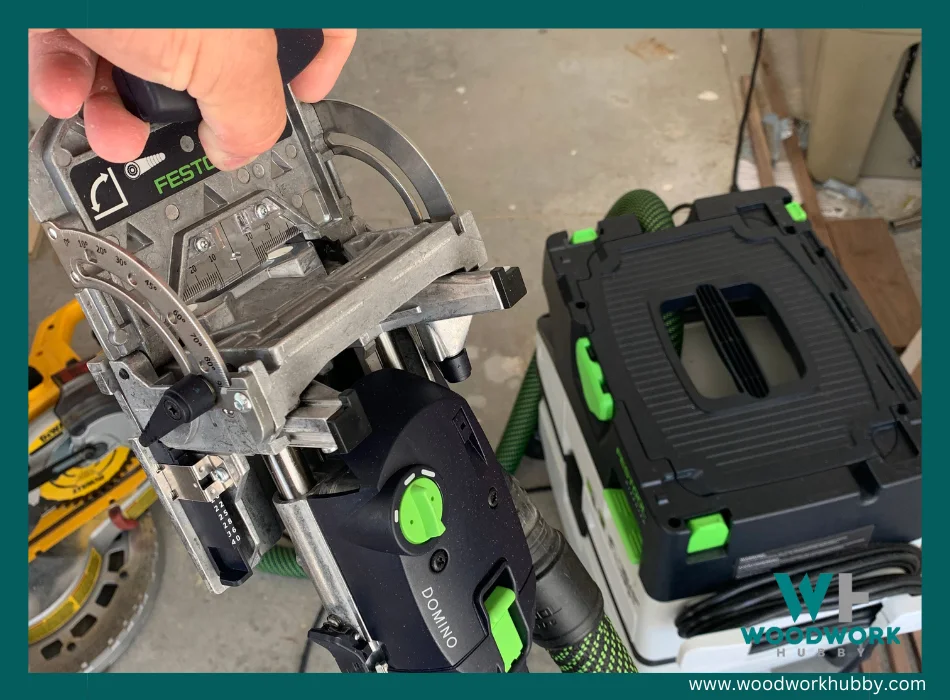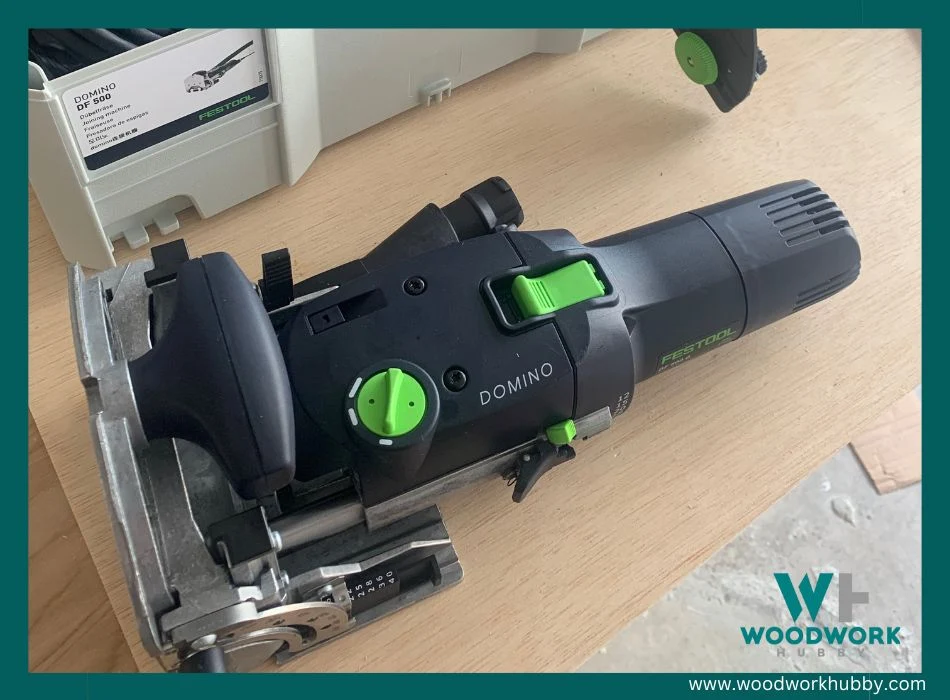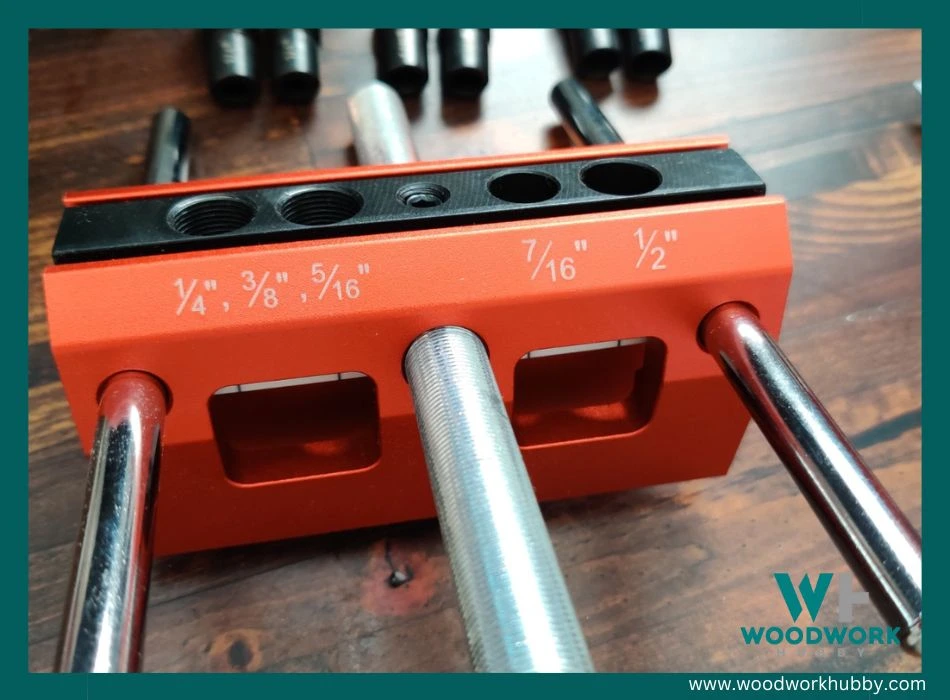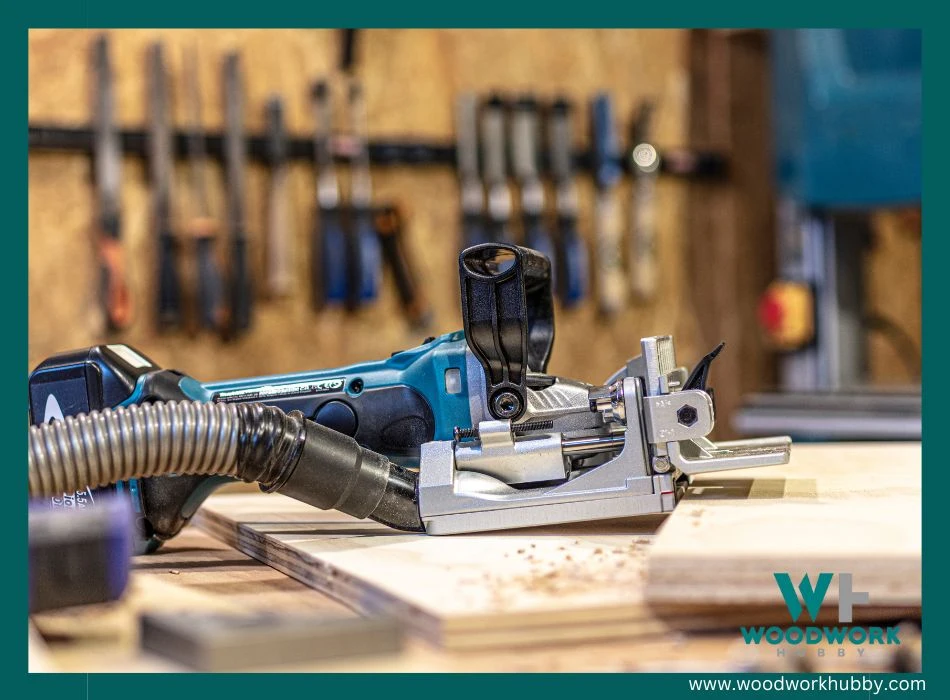Has your curiosity been piqued about when the Festool Domino patent will expire? You’re not alone. Having plowed through mountains of legal paperwork and decoded layers of complex jargon, we’ve determined that the original Festool Domino patent is likely to sunset sometime around 2025 or 2026, at least in both US and Europe.
In this blog post, I’ll delve deeper into specifics related to Festool’s patents—we’ll take a stab at their expiration dates and check out some noteworthy options beyond the realms of Festool for those wanting to spread their wings.
Key Takeaways
- The Festool Domino patent could end in 2025 or 2026. Then, other companies can make similar tools.
- The tool is used for woodworking jobs. It drills holes for “domino” joints quickly and well.
- Alternatives to the Festool Domino include doweling jigs, biscuits, pocket holes, traditional mortise, and tenon joints. Each has both good points and bad points.
- Your budget matters when choosing a joinery tool like these ones. Some may cost between $1,000 – $2,000 which might be too high for many people! Be sure your skills match up with the chosen device too!
Festool Domino and Its Patent
As a renowned brand, Festool offers innovative woodworking tools including the widely acknowledged Domino joiner. Utilizing special vibrating cutters for impeccable precision, the Domino epitomizes versatile and easy-to-use joinery systems.

Central to this innovation is Festool’s robust patent portfolio which safeguards its intellectual property rights – providing an exclusive hold on the technology that makes Domino an unrivaled masterpiece in today’s joinery market.
This protection not only caters to their business interests but also reflects their commitment to continual progress within the mainstream tool-making industry.
Overview of Festool and its tools
Festool is a top name in tool makers. They focus on making tools for chores like woodwork, painting, and more. The Festool Domino stands out among its many tools. Used by woodworkers, it makes joining two pieces of wood easy and fast.
This unique machine came to life around 2007 and has been popular ever since! With the expiration date of its patent nearing, one can only wonder what will come next in the world of joinery tools.
How the Festool Domino works
The Festool Domino is a handy tool for woodworking jobs. It looks like a biscuit joiner but works in a unique way. The key part that does the work is the cutter head. This spins and moves side to side at the same time.
It can drill holes quickly into wood pieces for mortise and tenon joints, also known as “dominoes”. So, you slip these dominoes into the holes made by this machine for strong connections between two wooden components.
Be sure to check out the great battle of the domino joiner vs. dowels.
It adds to your skill of woodworking craftsmanship without costing you much effort or time. You get nice and sturdy links with this device which appeared around 2007 and has evolved since then! The patents of Festool keep it special until they last which could be till 2025 or later!
Festool’s patents and intellectual property
Festool is a company known for making unique tools. One of their standout products is the Domino Joiner. It uses special design patents and intellectual property rights to keep its edge.

For example, nobody else can use or copy the clever way this tool cuts slots and uses linking pieces called Dominos.
These design secrets are protected by law for 20 years under patent protection rules. Festool has been coming out with new Domino designs since around 2004. So, it’s safe to say that these strict laws will keep competitors at bay from putting together similar designs until at least 2025 or 2026.
When Does the Festool Domino Patent Expire?
Knowing the exact date of when Festool Domino’s patent expires can be tricky due to legal complexities, but it’s clear that day will open new doors in the tool industry. There are always possibilities for patent extensions or modifications, which could potentially prolong their hold on this unique design.
When this occurs though, it will no doubt have significant implications both for Festool and its competition.
Speculation on the expiration date
The Festool Domino patent might last until 2025 or 2026. This guess is based on most patents in the US and Europe lasting for 20 years. Another woodworking tool, SawStop’s patent, has already ended or will end soon.
So we use it to help us make our guess right about when the Festool Domino’s own protection ends.
Potential extensions or modifications to the patent
Changes may happen to the Festool Domino patent. These changes may make it longer. This is called a patent extension. The Festool team might do this if they create new uses for the tool.
But something else could happen too. Festool could change their tool slightly, and then apply for a new patent. This way, they can own the rights to their idea for more years. It seems smart and in line with the rules of intellectual property, right?
Implications for Festool and Competitors
Festool will face some big changes when its patent ends. The end of the Festool Domino patent means other companies can make similar tools. They may even sell them for less money. This could be tough on Festool!
But, this is good news for other tool makers in the market. With the patent gone, they get to create their own versions of the Festool Domino tool. Also, it opens up more choices for people who love doing woodworking tasks at home! It’s going to make a lot of change in our world of carpentry and precision tools.
Alternatives to the Festool Domino
In this section, we’ll delve into the numerous alternatives to the Festool Domino that are currently available on the market. From pricing to performance functions, each option has its pros and cons which we’ll discuss in detail – so stay tuned for a comprehensive guide that can help you pick the right tool for your needs!
Video on domino machine
Other joinery tools and systems available in the market
I enjoy using a variety of joinery tools. The Festool Domino is top in its field, but it’s not the only choice. There are other tools just as good at putting pieces of wood together. Here are some alternatives on the market:
- Doweling jigs: These help put straight holes into pieces of wood for dowels. This makes strong joints.
- Biscuits: This system uses a biscuit cutter to make oval-shaped holes in the wood. Wood biscuits and glue hold everything together.
- Pocket holes: With these, you drill an angled hole through one piece of wood into another.
- Traditional mortise and tenon joints: It takes skill to make these but they last long and look great.
- Cheaper options: There are other systems out there that won’t cost as much as the Festool Domino.

Pros and cons of different alternatives
There are several alternatives to the Festool Domino in the market and each one has its own set of pros and cons.
| Alternative | Pros | Cons |
|---|---|---|
| Doweling Jigs | This is a low-cost alternative that is straightforward to use. It is also quite fast and reliable. | The accuracy of doweling jigs can vary, and they may not be as robust or durable as the Festool Domino. |
| Biscuits | Biscuits are simple to use and fairly cheap. They can also be used for a wide variety of joinery tasks. | They may not provide the same level of strength and precision as the Festool Domino. In addition, they can swell and warp if exposed to moisture. |
| Pocket Holes | Pocket holes are quick and easy to make. They are a great option for beginners and do not require expensive equipment. | They are not as strong as other joinery methods and can sometimes be visible, which may not be aesthetically pleasing in certain projects. |
| Traditional Mortise and Tenon Joints | These joints are extremely strong and reliable. They are also traditional and can add a certain charm to woodworking projects. | Making traditional mortise and tenon joints can be time-consuming and requires a good deal of skill and accuracy. |
| Dedicated Slot Mortise | A capable mortising solution and a great tool for workshop projects. | May not be suitable for projects that cannot be taken to the workshop. |
| Mafell Domino | A high-quality mortising machine similar to the Festool Domino. | It is also expensive just like the Festool Domino. |

Considerations for choosing the right alternative
Picking the right tool matters a lot. You need to look at your budget first. Tools that do what Festool Domino does can cost a lot of money, usually between $1,000 and $2,000. If this is too much for you, there are cheaper options out there.
Your skill level really counts too when making choices on precision tools like these. This helps you get the best use from it as some might be tricky for newcomers in woodworking techniques to handle well.
Always make sure the tool matches up with your skills before choosing it!
Conclusion – When Does Festool Domino Patent Expire?
As we edge closer to 2024, the tool world turns a hopeful eye. With the Festool Domino patent ending, many new doors will swing open. Makers can now bring fresher models into play.
Tools like these will change how carpenters work for the better.
FAQs
1. When does the Festool Domino patent expire?
The expiration date of the Festool Domino patent varies as it depends on when and where the patent was filed.
2. Will other companies be able to make similar tools once the patent expires?
Yes, once a patent expires, other firms can make products like those in the expired patents but must still avoid infringement of any active patents.
3. What are some alternatives for a Festool Domino?
Alternatives to a Festool Domino can include traditional joinery tools or biscuit joiners from companies such as Makita or DeWalt.
4. Can I buy used or second-hand Festool Dominos?
Yes, you may find used or second-hand Festool Dominos at tag sales, pawn shops, online platforms, and various woodworking forums.
5. Are there legal implications if I use an alternative that’s very similar to Festool Domino before its patent expiry?
Depending on how alike these “similar” alternatives are to a patented tool like the Festool Domino they might infringe patent laws causing possible legal problems.




